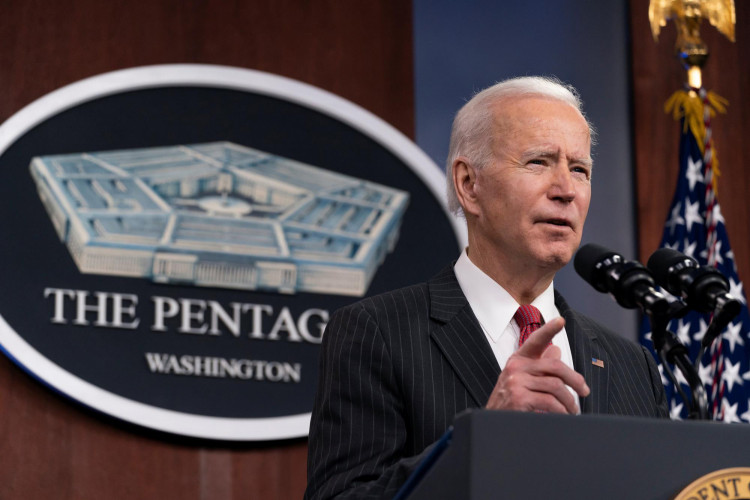China has again asked the U.S. to view China-U.S. ties through the lens of pragmatic objectivity instead of through the prism of Cold War animosity.
Its latest appeal for improved diplomatic and economic ties with the U.S. was made Thursday by Foreign Ministry representative Wang Wenbin. Wang urged the Biden administration to view its relations with China in an objective and rational manner. China also hopes the new administration will make pragmatic policy choices while trying to bring bilateral ties "back on the right track."
Wang emphasized China's commitment to developing bilateral relations with the U.S. marked by "nonconflict, nonconfrontation, mutual respect and win-win cooperation - and at the same time China will continue to resolutely safeguard its national sovereignty, security and development interests."
He hopes the Biden administration will go with the trend of the times, and "abandon outdated zero-sum thinking" while adopting a rational and pragmatic policy toward China.
Wang also said the U.S. can bring China-U.S. relations back on the right track by meeting China halfway, while focusing on cooperation and managing differences. Such an outlook by the Biden administration will better benefit the people of the two countries and the world at large.
Wang said China "has always been an architect of world peace." In addition, China is a contributor to global development, a defender of the international order and a growing force for world peace.
He claims China has always safeguarded the international system with the United Nations at its core, and maintained the international order based on international law. China has never sought hegemony, said Wang.
The Biden administration has kept up its tough talk against China ever since President Joe Biden Feb. 4 formalized his administration's adversarial stance against China.
In his first China policy speech, Biden said he'll call out economic and human rights violations by America's "most serious competitor." He also declared "America is back" as leader of the free world, and vowed "diplomacy is back at the center" of U.S. foreign policy.
"We will confront China's economic abuses," said Biden.
He said the U.S. will take "aggressive, coercive action to push back on China's attack on human rights, intellectual property and global governance."
His administration's relationship with Beijing won't only be confrontational, however.
"But we're also ready to work with Beijing when it's in America's interest to do so. We'll compete from a position of strength by building back better at home and working with our allies and partners."
Biden said he's spent more time with President Xi Jinping than any other world leader over the past two decades in a hint he's willing to meet with the Chinese leader.
Biden also pledged to restore U.S. alliances and lead with multilateral diplomacy to meet international crises while reversing former President Donald Trump's "America First" foreign policy.
In the week before Biden's China policy speech, another foreign ministry spokesman, Zhao Lijian, said China hopes Biden will meet China halfway, manage differences and push China-U.S. relations back on the right track of healthy and stable development.
"China and the United States will gain from cooperation and lose from confrontation," said Zhao. "Cooperation is the only right choice for both sides."






